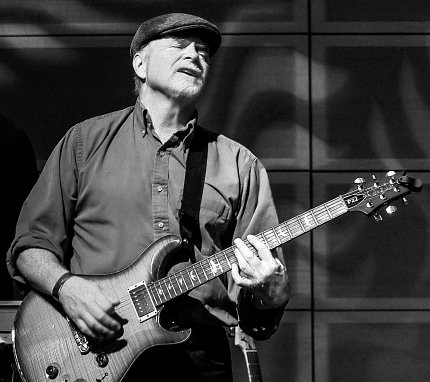O’Shea To Deliver Paul Lecture, Dec. 15

Photo: Ron Germain
NIAMS scientific director Dr. John O’Shea will deliver the annual William E. Paul Lecture, part of the Wednesday Afternoon Lecture Series, on Dec. 15 at 3 p.m. via https://videocast.nih.gov/watch=43816. The title of his talk is “Cytokine Signaling: The More Things Change, the More They Stay the Same.”
The annual Paul lecture, started in 2016, honors the legacy of Dr. William Paul, past chief of the NIAID Laboratory of Immunology and leader of NIH’s immunology community, whose career was without parallel in the field of immunology. Paul died in 2015.
O’Shea, a resident local-boy-done-good, is best known for his work on cytokines, which are small proteins important in cell signaling. A substantial portion of cytokines bind to receptors that associate with a class of protein tyrosine kinases, termed Janus kinases or Jaks.
O’Shea and his colleagues cloned the tyrosine kinase Jak3 and demonstrated its role in pathogenesis of severe combined immunodeficiency, including rheumatoid arthritis. This, in turn, has led to the development of a new class of immunomodulatory drugs.
O’Shea joined the NIH as a fellow in NIAID in 1981 and started his own lab group in NCI in 1989 before moving to NIAMS in 1994 as chief of the lymphocyte cell biology section. He became chief of the NIAMS Molecular Immunology and Inflammation Branch in 2002. He worked with Paul as a fellow and as a collaborator for many years.
“I’m very honored to give the Bill Paul lecture,” O’Shea said. “Bill was such an inspirational individual—a great scientist, a great person and always so supportive of me as I was trying to make my way being a scientist. He was truly an extraordinary role model.”
A member of the National Academy of Medicine, O’Shea is the recipient of numerous awards, including the 2021 Harrington Prize for Innovation in Medicine (with fellow NIH’er Warren Leonard, NHLBI), PHS Physician Researcher of the Year, Lee C. Howley Sr. Prize for Arthritis Scientific Research and the AAI-Steinman Award for Human Immunology Research.
Continuing Medical Education credits will be available for the lecture.
